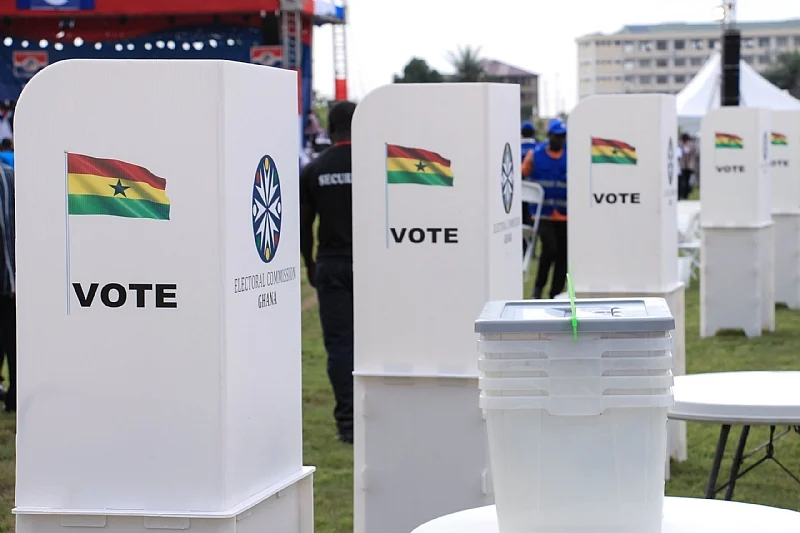In any democratic society, voting is a fundamental right that empowers citizens to choose their leaders and shape their future. However, the efficacy of this process relies heavily on the criteria used to make these choices.
While emotions, biases, and rhetoric often influence voting decisions, it is essential to prioritize actual records of impactful delivery when casting ballots to ensure accountability, informed decision-making, effective governance, and transparency.
Furthermore, voting based on actual records holds leaders accountable for their actions and promises. By examining their track record, citizens can determine whether their leaders have delivered on their commitments, making them more responsive to the people’s needs.
Moreover, focusing on actual records ensures that voters prioritize tangible results over empty promises or rhetoric. Politicians often make grandiose claims during campaigns, but their actual performance may differ significantly.
As such, by evaluating their records, citizens can separate rhetoric from reality, rewarding leaders who have genuinely improved their lives and communities.
More so, analyzing actual records of leaders enables informed decision-making, rather than relying on emotions or biases.
It also allows citizens to make objective assessments of a leader’s performance, considering concrete achievements and challenges overcome. Informed decision-making strengthens the democratic process, as citizens engage more meaningfully in the political discourse.
Moreover, voting based on actual records promotes effective governance and policy implementation as by rewarding leaders with a proven track record, citizens incentivize the development and execution of policies that yield tangible results.
As such, focusing on actual records promotes transparency and scrutiny of leaders’ actions, reducing corruption and abuse of power. When citizens prioritize accountability and tangible results, leaders are more likely to operate transparently, knowing their actions will be subject to public scrutiny.
Accordingly, Franklin Cudjoe, Founder and President of Imani Africa, has urged Ghanaians to make their electoral decisions during the impeding 2024 General Election based on records of actual impactful delivery.
He further encouraged Ghanaians to cast their ballots for the candidate who presents a comprehensive and realistic vision for addressing the nation’s socio-economic challenges, and has a tangible plan to drive sustainable development and prosperity for all citizens.
“For many of us, a free competitive economy, an actual credible plan to complete the one and only debt restructuring (none again by 2028 and never again afterward) of a fulfilled livelihood, better education, decent affordable housing, healthcare, transportation, and good water and sanitary systems, digitalization of efficient and honest processes accompanied by respect for alternate views should be our guide in deciding who gets our votes”.
Franklin Cudjoe
Essence Of Voting
Underscoring the importance of exercising one’s franchise on the country’s democracy, Franklin Cudjoe urged all eligible voters to vote during the December 7th elections.

Moreover, he admonished Ghanaians to break the cycle of emotional voting, cautioning that allowing sentiments to dictate their choices at the polls hinders progress and development.
As such, he emphasized the importance of informed decision-making, encouraging citizens to prioritize evidence-based governance and tangible results over emotional appeals
The failure to vote based on actual records of real impactful delivery has far-reaching negative consequences. It leads to ineffective leadership, as leaders are not held accountable for their actions and policies.
Furthermore, this lack of accountability breeds corruption and abuse of power, causing stagnation and decline. Citizens become disillusioned and apathetic, leading to decreased civic engagement and participation in the democratic process.
Moreover, it leads to resources being misallocated, as leaders prioritize projects or policies that appeal to their supporters rather than addressing actual needs which hinders progress and reform.
As such, marginalized groups are left without representation, as their needs and concerns are overlooked.
More so, political polarization is exacerbated, causing increased division and gridlock between political factions and their supporters.
Ultimately, democracy is undermined, as citizens fail to hold leaders accountable and the political process becomes disconnected from the people’s needs and concerns, hence, by prioritizing actual records of impactful delivery, voters promote a more accountable, effective, and representative government.
READ ALSO: Arrests Made Over Hardeep Singh Nijjar’s Assasination




















